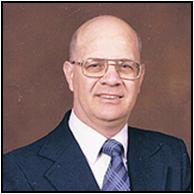 |
|
| Vol. 16 No. 8 August 2014 | Page 11 |

Mark McWhorter
 In Revelation 21:18, we read, “And the building of the wall of it was of jasper: and the city was pure gold, like unto clear glass.” This verse is part of the description of the church given by John. He saw the heavenly Jerusalem descending out of heaven (v. 10). The church is seen as a most beautiful place made of gold and precious stones.
In Revelation 21:18, we read, “And the building of the wall of it was of jasper: and the city was pure gold, like unto clear glass.” This verse is part of the description of the church given by John. He saw the heavenly Jerusalem descending out of heaven (v. 10). The church is seen as a most beautiful place made of gold and precious stones.
In ancient times, jasper was seen as having certain special powers. It was also believed to be associated with certain things. These are not true, but it is possible that these beliefs and superstitions are reasons that God used jasper in his picture of the church.
Jasper stone was believed to be a remedy for snakebite. How appropriate that the church is envisioned as having walls that make the city safe from the bite of the great serpent, Satan. If one stays inside the walls of the heavenly Jerusalem, one cannot be harmed by the bites of the Serpent.
The jasper stone was also thought to have the special power to relieve drought. People believed that the stone could be used to bring much needed rain during times when it had not rained for a long time. Jesus said He brought living water. He meant that if one will drink of the truths in the Bible, then one will live forever in Heaven. If we will stay inside the walls of jasper, then we will always have the kind of water that we need.
The jasper stone also was believed to represent satisfaction. If one possessed a jasper stone, one would be satisfied with life. God has promised to give us everything that we need to live the life of a Christian. We will be satisfied with life no matter what our situation may be if we stay within the walls of jasper.
I do not know for a fact that God used the jasper walls to tell us these things. Yet, I do know that we can be satisfied, that we will have plenty of spiritual water, and that we can be safe from the Serpent if we will stay within the walls of the church.
Keep studying your Bible. Learn what you need to know to get into the church and stay in the church. Take advantage of the walls of jasper. If any of this is hard to understand, ask an adult to help you.![]()
Donald R. Fox
 Don’t we all harbor regrets in our lives? We all make mistakes. We all flounder in a world of doubts and the misdirection of poor human advice. Oh, to put our sorrows, regrets behind us and push forward, doing that which is right in the sight of God Almighty must be our goal. “I want to live my life so that my nights are not full of regrets” (D. H. Lawrence, 1885 – 1930).
Don’t we all harbor regrets in our lives? We all make mistakes. We all flounder in a world of doubts and the misdirection of poor human advice. Oh, to put our sorrows, regrets behind us and push forward, doing that which is right in the sight of God Almighty must be our goal. “I want to live my life so that my nights are not full of regrets” (D. H. Lawrence, 1885 – 1930).
As we ponder regrets, we can imagine that even the illustrious apostle Paul must have had inner regrets.
Yet few men, young or old, have been so furious in persecution as was Saul of Tarsus; and the fact that he, so young, entered on the work of persecution in the manner he did… He “made havoc of the church, entering into every house, and, haling men and women,” he tore them from their homes, and “committed them to prison” (Acts 8:3)… He “punished” that is, scourged them “in every synagogue.” (Life of the Apostle Paul by Albert Barnes, 30)
With zeal that few men can muster, Saul of Tarsus, later the fearless, matchless apostle Paul, performed many acts against the church. How did he overcome past negative feelings, past actions and finally to prevail?
“Brethren, I count not myself to have apprehended: but this one thing I do, forgetting those things which are behind, and reaching forth unto those things which are before, I press toward the mark, for the prize of the high calling of God in Christ Jesus” (Philippians 3:13-14). Paul, while in the flesh did not fully possess (apprehend) his final reward. He put his past behind. He did not dwell on it in a way as to take away from his goal. He pressed forward. This should be our goal also, to forget, to put aside our regrets and thus to prevail. “A merry heart maketh a cheerful countenance: but by sorrow of the heart the spirit is broken” (Proverbs 15:13).
It is a human factor to regret. I would wonder about a person who said he made no mistakes and who has no regrets in his life. With faith in our Savior, Jesus the Christ, and the promise of the prize, let us live in peace with fewer and fewer regrets.![]()